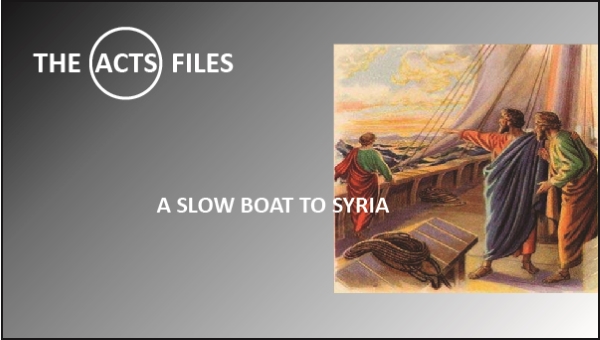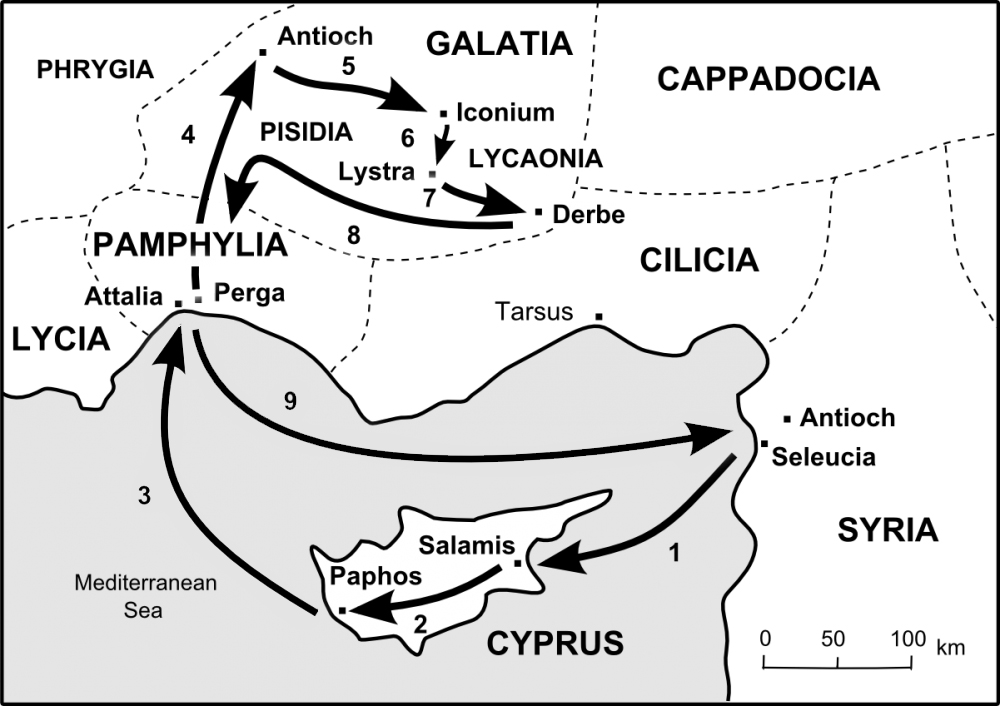By Tyson Thorne

After establishing a community of believers in Derbe, Paul and Barnabas had to decide the next leg of their journey. Surely they discussed the possibility of heading south to Tarsus and catching a ship back to Antioch in Syria. After having been stoned and left for dead, however, Paul likely worried about the fate of those churches they had established in Lystra, Iconium and Pisidian Antioch. They made the hard choice of retracing their steps to assure their brothers and sisters were well and to bring them the encouragement they surely needed.
Paul understood the cost of following Jesus, perhaps more than anyone. Having started out persecuting Jesus’ followers, he now was the one being persecuted. While his encouraging words wouldn’t win him a motivational speaking award, he spoke the truth saying, “We must enter the kingdom of God through many persecutions.” Paul’s focus wasn’t on the persecution itself, but rather on entering the kingdom of God. Our hope, our strength, our endurance all stems from the knowledge that we will one day enter into God’s holy presence and live eternally with him. Until then, we must go through whatever God allows.
For the first time in church history, the office of elder is created. Paul and Barnabas appoint at least two elders per church to oversee the community of believers and to protect them from false teachings. This designation is different from “apostles” who minister through the word and prayer, and from deacons who minister to the felt needs of the Christians in their community. Elders minister by keeping the people in their care from accepting false teachings and false teachers. After their experiences in Iconium and Lystra the apostles were taking no chances with heresy creeping in and poisoning the minds of their children. The church now has the following offices: apostle, teacher, deacon, prophet, disciple and elder.
They prepared these new elders by staying with them several days, teaching them and fasting and praying with them. The phrase used here literally means “praying with fasting” meaning the two were a single act of communion and sharing with God. When the apostles considered them ready, they released them to their assigned communities.
The duo then traveled south to Perga where the stayed and helped raise another church before setting sail for the return home. In all, Paul and Barnabas traveled approximately 1,400 miles mostly by ship and on foot. Upon their arrival their work was “completed”. This does not mean that their ministry was over, far from it. The meaning is found in the opening of chapter 13 where they were commissioned to take the news about Jesus to certain regions. The journey they had undertaken was now complete, but their ministry would continue until their deaths. Barnabas and Paul then stayed in Antioch for quite some time, until the next challenge arose.
Convincing ourselves to take some time off after completing an arduous task is easy. The project is complete, so it is natural to set aside our responsibilities and “recharge”. For Barnabas and Paul there was no such notion. While their travels may have ended they immediately picked back up with teaching in their home church. If anything their adventures abroad taught them how important it is for disciples of Jesus to know their Scripture and their God. Do you think your knowledge of the Bible and your relationship with God would be considered strong, or weak in the eyes of Barnabas and Paul? What will you do to improve their possible assessment?
|
|
|
